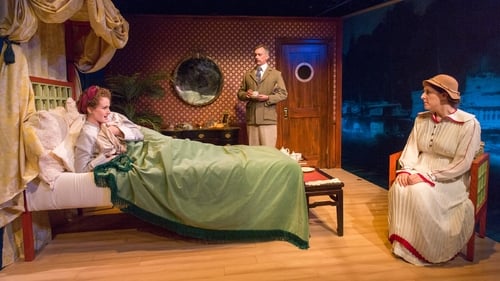
Alice Meynell
Set aboard a houseboat on a fashionable reach of the Thames in 1911, The New Morality tells the story of how the brazen Betty Jones restores dignity to her household and harmony to her marriage, by losing her temper and making a scene. A rising star, Harold Chapin had numerous one-acts and three full-length plays produced before he was killed on the battlefield in 1915 at the age of 29. “When Harold Chapin fell in France the modern British theatre lost a comic writer of high order,” declared the Sunday Times. “For intellectual foolery, his New Morality has no equal in present-day work.” The play was produced five years after his death to great acclaim, and then languished in obscurity for decades until our “lavishly crafted”1 revival introduced New York theatergoers to Chapin’s “unabashed comedy with bite.”2

Charlotte
Two men separated by 100 years are united in their search for freedom. In 1856 a slave, Samuel Woodward and his family, escape from the Monroe Plantation near Richmond, Virginia. A secret network of ordinary people known as the Underground Railroad guide the family on their journey north to Canada. They are relentlessly pursued by the notorious slave hunter Plimpton. Hunted like a dog and haunted by the unthinkable suffering he and his forbears have endured, Samuel is forced to decide between revenge or freedom. 100 years earlier in 1748, John Newton the Captain of a slave trader sails from Africa with a cargo of slaves, bound for America. On board is Samuel's great grandfather whose survival is tied to the fate of Captain Newton. The voyage changes Newton's life forever and he creates a legacy that will inspire Samuel and the lives of millions for generations to come.

